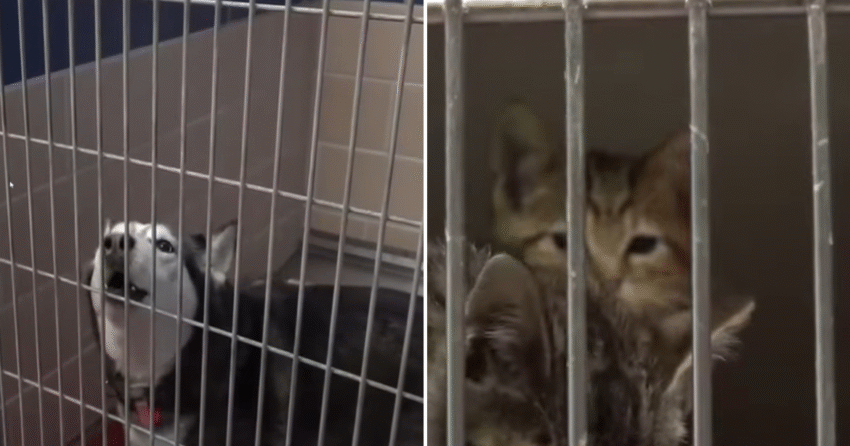When Hard Times Hit, Shelters Brace to Keep Families and Pets Together
A Growing Crisis in Illinois
In Rockford, Illinois, a quiet worry is spreading through communities as thousands of families brace for the loss of their Supplemental Nutrition Assistance Program (SNAP) benefits starting November 1. While most immediately think of the human impact — empty refrigerators, skipped meals, and rising anxiety — the effects are reaching far beyond the kitchen table. Animal shelters are preparing for a heartbreaking consequence: a potential wave of pet surrenders as families struggle to afford even the basics.
The Human Toll and the Animal Cost
At Winnebago County Animal Services, the staff is already seeing signs of strain. Adoption and volunteer coordinator Amber Pinnon says the shelter expects to see more pets coming through their doors as families face impossible financial choices. “We do expect that when people have certain things that they depend on, whether it’s rental assistance or SNAP benefits or things like that, creating more economic difficulty would lead to other pets being surrendered into our care,” she explained.
This situation isn’t new, but it’s becoming more severe. Families who once managed to balance rent, utilities, and pet care are now being pushed to their limits. The choice between feeding their children or feeding their pets is one no one should have to make. Yet shelters across the state fear that as assistance programs pause, that choice will become all too common.
Working Together to Prevent Pet Surrenders
Winnebago County Animal Services isn’t facing this challenge alone. The shelter partners with local organizations to help families stay united with their pets despite financial hardship. One of their key allies is Care for Pets, a Rockford-based nonprofit that steps in when families have nowhere else to turn. By providing assistance with veterinary costs, housing deposits, and emergency pet food, the group acts as a lifeline for pet owners on the brink.
Stephanie Hicks, the executive director of Care for Pets, says the demand for help has already surged. “If you can’t afford pet food, then you can’t afford rabies compliance,” Hicks said. “Now we have a further barrier of stretched money to receive groceries, more people trying to access pet food, and it’s a problem.”
The Ripple Effect of SNAP Cuts
Hicks estimates that around 90% of the families her organization helps rely on SNAP or LINK benefits. Without that safety net, she fears a rise in evictions, hunger, and pet abandonment. “We know that our clients feed their own food to their pets off of their SNAP benefits,” she explained. “And we also know there are barriers to accessing pet food — people can’t necessarily afford that access. So how do we do both?”
The question lies at the heart of a growing crisis that blends compassion with survival. For many low-income families, pets aren’t just animals — they’re emotional anchors, sources of comfort, and vital parts of the family unit. Losing them would mean losing stability and love at a time when people need it most.
Hope Through the “Grocery Buddy” Program
To combat the problem, Care for Pets has launched a new initiative called the “Grocery Buddy” program. The effort pairs volunteers and donors directly with families struggling to afford both groceries and pet food. It’s a simple yet powerful idea — connecting people who can help with those in need, ensuring that no pet goes hungry and no family is forced to give up a beloved companion.
“A lot of our clients are over the age of 65 and they just don’t have enough income to supplement their food,” Hicks said. “They are afraid that they are going to be hungry and their pets are going to be hungry.”
No One Left Behind
Through combined efforts from Winnebago County Animal Services, Care for Pets, and compassionate members of the community, there’s still hope. Their mission is clear: to keep families and pets together, even when times are tough. In the face of economic uncertainty, these organizations remind everyone that compassion doesn’t stop when wallets grow thin — it grows stronger. Because when people and pets stand together, no one has to face hunger or hardship alone.
Click below to watch story:




